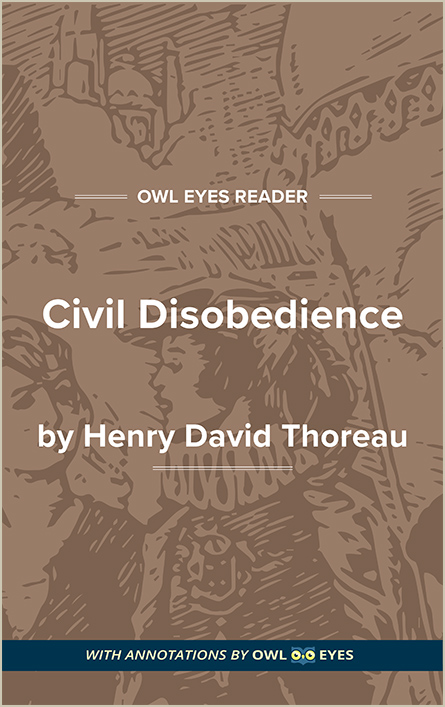- Annotated Full Text
- Literary Period: Transcendentalism
- Publication Date: 1849
- Flesch-Kincaid Level: 12
- Approx. Reading Time: 46 minutes
Civil Disobedience
In July of 1846, town constable and tax collector Sam Staples arrested Henry David Thoreau in Concord, Massachusetts. Thoreau had refused to pay his poll tax for six years, resulting in his arrest. He was released on bail just the next morning, but his night in jail proved pivotal, inspiring his 1849 essay “Resistance to Civil Government,” later known as “Civil Disobedience.” Like other New England transcendentalists, Thoreau believed in an individual’s right to self-determination. For Thoreau, the drive to disobey stemmed from both a principle of personal autonomy and a deeply anti-authoritarian perspective. Thoreau places himself in the history of American political thought with the opening sentence, in which he “heartily accept[s]” the claim that “‘that government is best which governs least.’” Thus, Thoreau aligns his interest with those of a strain of American conservatism that stretches back to the days before the Revolutionary War and remains alive today. Perhaps paradoxically, “Civil Disobedience” has become a timeless text among progressives, too. The essay was influential to Mahatma Gandhi during his movement against British imperialism and to Martin Luther King, Jr. during the American Civil Rights Movement of the 1950s and 60s.
- Annotated Full Text
- Literary Period: Transcendentalism
- Publication Date: 1849
- Flesch-Kincaid Level: 12
- Approx. Reading Time: 46 minutes

